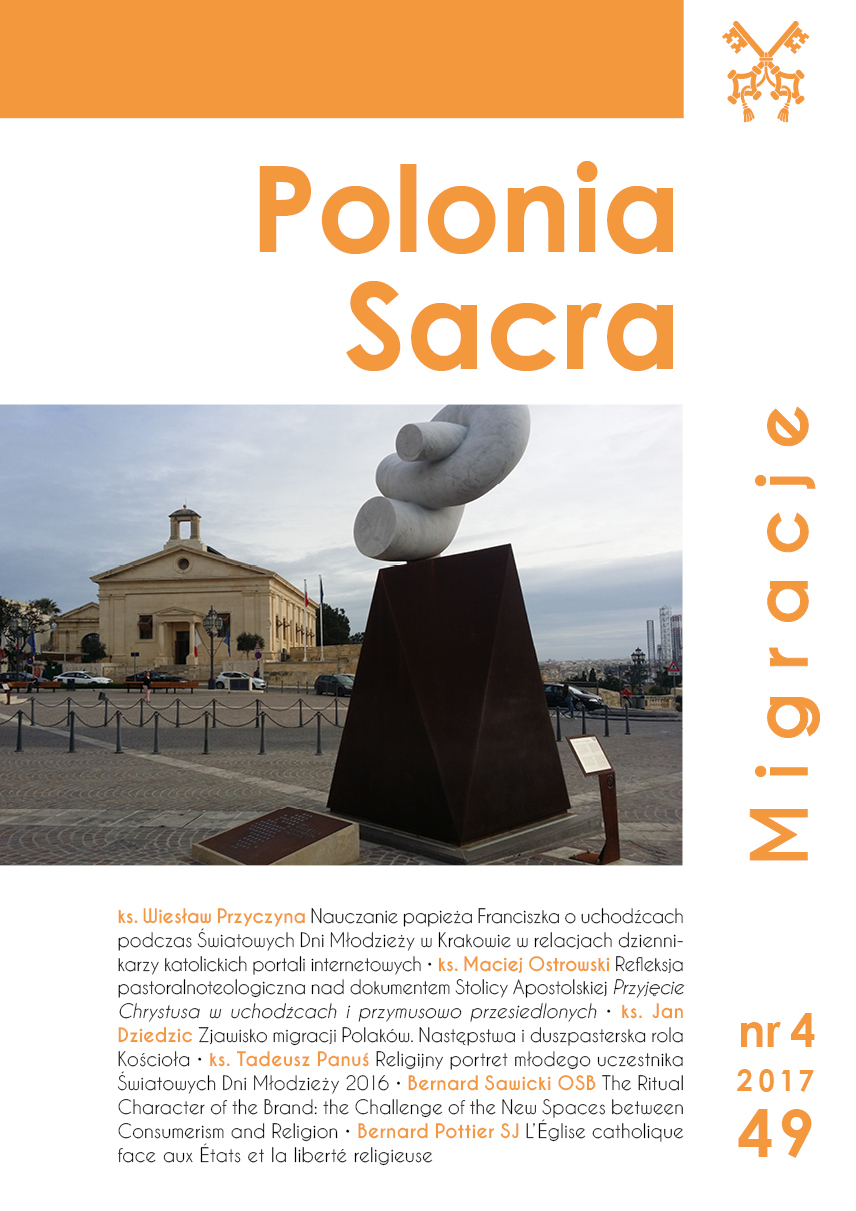Zjawisko migracji Polaków
Migrations of Poles over the Years
Their Positive and Negative Effects, and the Pastoral Role of the Church
Author(s): Jan DziedzicSubject(s): Christian Theology and Religion, Theology and Religion, Pastoral Theology, Sociology of Religion
Published by: Wydawnictwo Naukowe Uniwersytetu Papieskiego Jana Pawła II w Krakowie
Keywords: migrations of Poles; migration effects; human dignity; Polish Ministry Abroad
Summary/Abstract: Migrations of Poles are by no means a new phenomenon. As long ago as the 19th century, Poles travelled abroad, mostly to the USA and Canada. In 1913, for example, Poles constituted as much as 40% of all miners in the Ruhr area in Germany. The migrations of Poles did not stop after World War 2. On the contrary, the numbers of Polish immigrants suddenly increased, reaching 8 million. Similarly, between 1971 and 1989, Poles continued to look for new opportunities for their professional development in other countries. Migrations of Poles did not stop after 1989 either, and still continue today. Statistics show that the majority of Poles who move abroad today choose Great Britain, Germany, Holland and Ireland. Living and working abroad have both positive and negative effects. Learning a foreign language and culture, getting acquainted with the latest technologies as well as improving quality of life are just a few examples of the former. On the other hand, weakening of bonds within the marriage or even marriage breakdown, euro orphanhood, deterioration of religious/spiritual life, greater risks of falling ill, working below their aspirations and competences are the most common negative effects that Polish immigrants often face. The Church does not forget their Polish immigrants. There are hundreds of Polish Catholic Missions all over the world whose main aim is to help the immigrants’ spiritual development by providing pastoral care and support. There are over two thousand priests working abroad today. They are following the formation programme which John Paul 2nd clearly outlined after his numerous meetings with the Poles living abroad. Its most important elements are: preserving their own identity, their integration in the new, often alien, environment as well as creating strong moral principles, which are based on the paradigm “better to be than to have”.
Journal: Polonia Sacra
- Issue Year: 21/2017
- Issue No: 4
- Page Range: 37-60
- Page Count: 24
- Language: Polish

